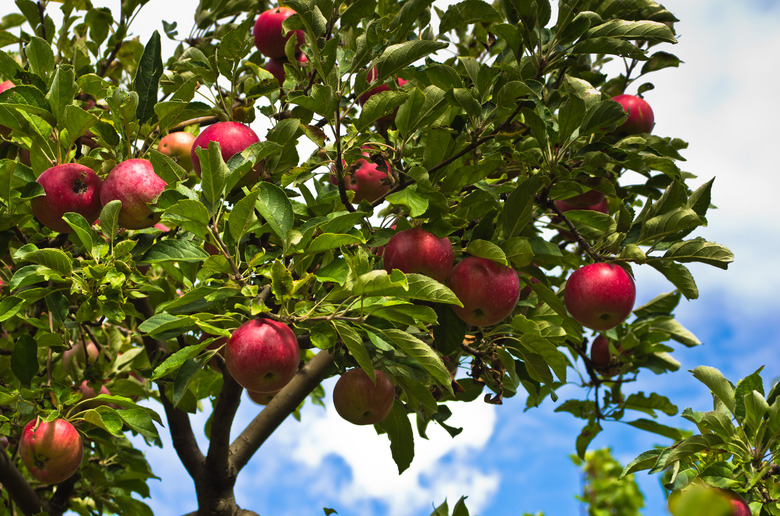List Of Fruit-Bearing Trees
Fruit trees can be a gorgeous addition to your garden as well as a food source for your dining table or backyard birds. There is a large list of fruit-bearing trees from which to choose that will give you an abundant crop of fruits. Whether you are hoping to plant a fruit tree in order to can the crop or are looking to expand the varieties of fruits in your garden, there are many things to consider.
List of Fruit Trees
Depending on where you live, you can have a tiny orchard and rows of blossoming fruit trees that line your property and produce buckets of edibles every season.
- Apple (Malus spp.) – This is one of the most popular and hardy trees to plant. There are many varieties that can
be planted in cold climates or warmer regions around the world. They do require
rich, relatively well-drained soil no matter where they set down roots. - Cherry (Prunus spp.) – Its blossoms are revered for their dainty structure
and pinkish hue and its fruit for its sweetness. They require full sun during
the growing season and a companion tree to blossom. - Pear (Pyrus spp.) – These hardy fruit trees have dense canopies of thick
leaves with bulbous, juicy fruit. They do well in full sun or partial shade but
don't like to get their branches cold below 32 degrees. It can take a few years
to provide fruit, but once it is set up in the right conditions, it will produce
an abundance of fruit season after season.
Stone Fruit Trees
Peach (Prunus persica), apricot (Prunus armeniaca) and other stone fruit trees require the same type of care and maintenance all year long with a good fertilizer at least once a year.
A sunny spot out of the wind will give you bunches of peaches on the tender green branches. If you aren't sure about the weather conditions, a peach tree will grow just fine in a large, well-draining container that can be moved indoors when the temperatures dip below freezing.
Citrus Trees for Planting
Lemon (Citrus x limon), lime (Citrus x aurantiifolia) and sweet orange trees (Citrus x sinensis) will give you bowls of ripe fruit in the winter months with the proper care. They enjoy a warm climate and a dose of fertilizer that is low in phosphorous and heavy with nitrogen and potassium.
References
Best Fruit Trees for Canning
- Damson plum (Prunus domestica subsp. insititia 'Shropshire Prune,' USDA zones 5-7) –
Heavy clusters of narrow fruit grow on the thin and
sturdy branches of this tree that is a member of the plum family. Although not
as plump as its plum cousins, the fruit from the damson tree is perfect for preserves,
jams and jellies. It can be grown as a single fruit-bearing tree but will
produce more of the purplish fruit when close to a companion tree of
the same species.
- American elderberry (Sambucus canadensis, zones 4-9) – This is a fast-growing favorite among gardeners. It
provides fragrant flowers for cutting and placing in the home as well as
abundant clusters of tiny berries that are used for making fruit wines and
cordials and flavorful jellies. - Pomegranate (Punica granatum, zones 8-10) – These drought-friendly flowering trees begin
as large, bushy trees that produce fruit fairly early on after planting. They
can handle extreme cold as well as blazing hot temperatures to produce rich,
red flowers in the spring that turn into globes of healthy fruit. The tart-tasting
seeds can be turned into jellies and jams as well as poured over savory or
sweet dishes.
